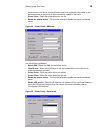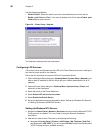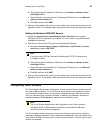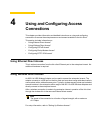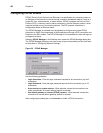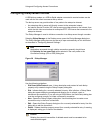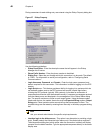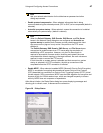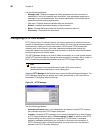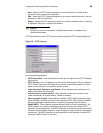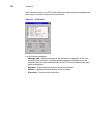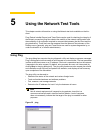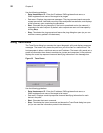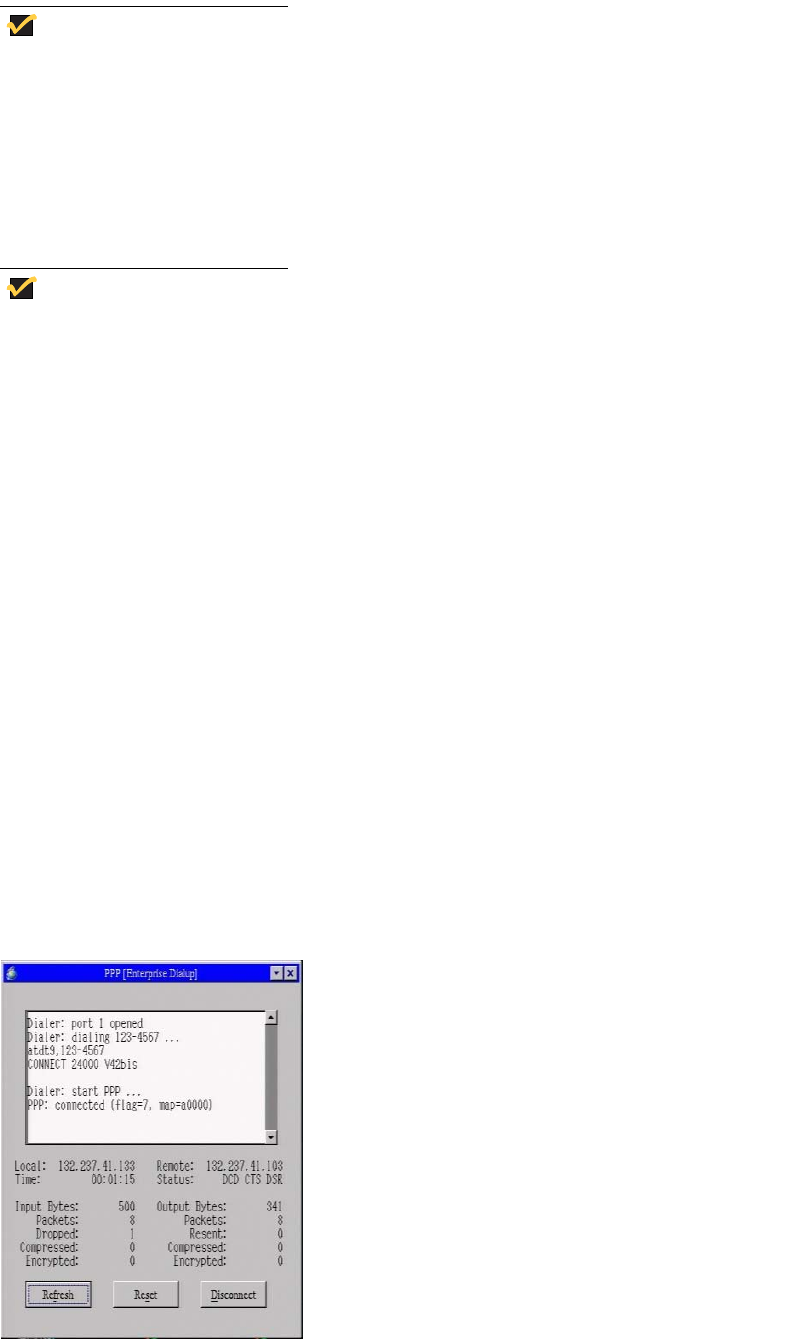
Using and Configuring Access Connections 47
Note
Ask your network administrator for the dialed server password and other
dialog requirements.
• Enable protocol compression - When selected, allows data that is being
communicated using the selected protocol (PPP or SLIP) to be compressed (default is
selected).
• Auto-dial on system startup - When selected, causes the connection to be dialed
automatically on system startup. (default is cleared).
Note
When the Default Gateway, DNS Domain, DNS Server, and File Server
boxes in the Network Setup dialog box are configured and Auto-dial on
system startup is enabled, both firmware revision checking and thin client
sign-on are active (sign-on is only active if the profile on the FTP server
enables it).
The Default Gateway, DNS Domain, DNS Server, and File Server boxes
are required to enable access to an FTP server after the completion of
establishing a PPP connection. However, only the File Server path is
required to accomplish firmware revision checking and update (the more
complicated the network topology in the target network, the more values are
required in order to contact the FTP server).
If both Auto-dial on system startup is selected and Auto-connect on system
startup is selected in a PPTP connection, the dial-up connection will be
completed before the PPTP connection is initiated.
• Enable MPPE - When selected, enables MPPE (Microsoft Point-to-Point Encryption).
MPPE is a method of encrypting data transferred across Point-to-Point Protocol
(PPP)-based dial-up connections or Point-to-Point Tunneling Protocol (PPTP) virtual
private network (VPN) connections. MPPE uses the RSA algorithm for encryption and
supports 40-bit and 128-bit session keys, which are changed frequently to ensure
security. MPPE does not compress or expand data.
After dialup initiation, the Dialup Status dialog box opens displaying messages and
allowing you to refresh, reset, or disconnect the connection.
Figure 28 Dialup Status



